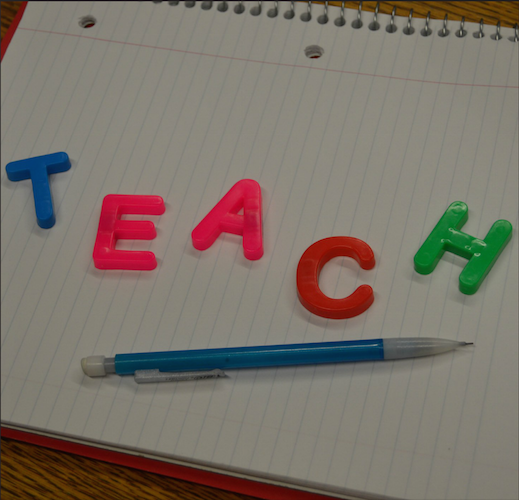Senior year is turning out to be everything I hoped it would. My ASEM is finished, my thesis is slowly coming along and I love my current internship in Denver. The only downside to this year? The fact that it will end in June.
When I first arrived on campus, I was unsure what major I would choose. I started exploring different classes and, after a couple years, decided on psychology and Spanish. I studied abroad in Ecuador to enhance my language skills and dove into the realities of clinical work and research in the field of psychology.
I have always been aware of the reality of educational inequity in this country. From this awareness grew a determination to act. As college progressed, I often thought back to the work I did in a Teacher Cadet program in high school and the valuable lessons this experience taught me about education. I started to wonder if maybe all of the skills I’ve been honing in psychology—understanding development, looking at the world through others’ perspectives and asking the tough questions—were actually preparing me for something else all along. Maybe I didn’t have to leave the causes I cared about behind when I entered the “real world.” Maybe I could make an impact, develop my skills and hold on to the things I’ve loved most about the University of Denver—a sense of community, school spirit and relationships that matter.
All of these maybes led me to Teach for America. While I’m eager to start my career in education, I still get anxious. Will I be good enough for my kids? Despite the challenges, I’m sustained by what I know. Education isn’t serving all kids in this country. We’ve got to change this—and fast.
Nothing about this will be easy. The problems in our schools didn’t start there—they reflect deep, systemic, overlapping injustice across race, class and geography. A family who can’t access health services and struggles to keep both parents employed. Those working multiple jobs need after school care but don’t live in communities with the resources to provide it. Each inequity makes the next one worse.
When we choose to teach, we choose to disrupt this cycle. Outside of my studies and work with campus organizations, last year I was fortunate to spend a few hours every week working with students at Rocky Mountain Prep, a local elementary school not far from campus. My time in the classroom was a sharp contrast to the bubble of life on campus. Every week I worked on reading and writing with a small group of kindergarteners, many of whom were pushing themselves to reach first grade. Despite all of the challenges these students face, both inside and outside of the classroom, they’re some of the brightest, boldest, and determined minds I’ve met. Spending time with them was some of my favorite few hours of the week.
When we come together to help kids change the way they think about their own abilities and futures, we create classrooms full of students who are dreaming big. When we equip them with the skills and tools to thrive in and out of the classroom, we cultivate boundless potential–the future scientists, politicians, writers, artists, doctors, attorneys who shape the world we are all going to share. It won’t happen overnight. It will take sustained, thoughtful effort. I want to be a part of it.
I don’t know exactly where this next step will take me. If I love teaching as much as I think I might, I’ll keep at it. Or maybe I’ll become a principal, or continue working with at-risk populations in psychology. Wherever I go, I’ll empower my students to break the cycle and strive to become part of a better one.
I can’t wait for school to start.











